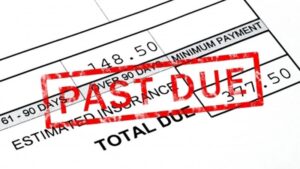Remedies for Struggling Directors: CVAs and Renegotiating with Creditors
Company directors experiencing financial difficulties often consider terminating agreements and contracts to reduce the burden of their debts.
A director in this position must avoid delaying decisions and rectify the situation as soon as possible; otherwise the business will experience a rapid decline in trade and become insolvent.
Reducing staff and rented equipment will lower costs, but leave you liable for compensation and cancellation payments. Also, many contracts have termination clauses that require lengthy notice periods.
Is the company expecting a big order and likely to increase sales or are you dodging creditors and putting off renegotiating contracts in vain? The director(s) must assess the viability of the business, and quickly.
It all comes down to your contracts. To come out of them you’ll probably have to go to court, which may cost up to £10,000.
The director must consider whether the other party will litigate and weigh up the cost of paying all legal fees against the benefits of terminating the contracts.
Interestingly, most litigation starts because people think it will only cost a couple of thousand pounds, but the cost escalates once the other party starts defending.
It’s good to review your contractual arrangements regularly, even those with your workforce. If you decide to discontinue any of these relationships, look at the commerciality and act accordingly.
This is how large companies behave; knowing the only way a contractual injustice can be remedied is through the courts. Moreover, court costs may be expensive and the outcome is anyone’s guess; you may win or lose.
Renegotiating terms for arrangements with creditors is another good idea. Alternatively, you could make a Company Voluntary Arrangement (CVA), which allows a company to pay for the termination of contracts and avoids liquidating the business.
Under the terms of a CVA, the company can pay creditors as little as 40p in the £1 and stretch beyond the usual 12 month period up to five years.
A business rescue adviser can help restructure your company and establish a CVA if necessary. Contact Insolvency and Law for advice on CVAs and negotiating with creditors.
Debtor Alert: Theodore Global Ltd
Theodore Global Ltd: A Company That Fails to Pay Its Staff and Trades While Insolvent If you’re thinking about working with, or for Theodore Global…
Read MoreIrene MacKenzie- The Gatekeeper of Silence
Irene MacKenzie and the Web Around William Jackson In the shadows of the alternative investment world, where buzzwords are abundant but redemptions are not, one…
Read MoreBilly Jackson Update Part 2: Companies of Interest
In our last blog on Billy Jackson, we exposed the web of enablers supporting his business operations. In this follow-up, we turn the spotlight on…
Read MoreThe Grim Truth for Loan Note Holders -79th Luxury Living Six Ltd (LL6)
No assets or safeguards. No clear path to recovery. If you’re one of the many investors who entrusted your money to The 79th Group’s loan…
Read More




